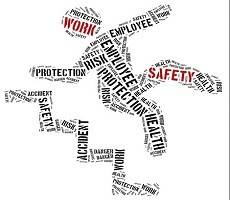October 2, 2016
Apple HQ + Limits of workplace design + Workplace effectiveness 0
 In this week’s Newsletter; Tim Oldman argues that businesses are failing to understand the basis of workplace effectiveness; Mark Eltringham looks at ways of using workplace design to influence the feelings and behaviour of others; and takes part in a podcast with Hari Kalymnios, author, trainer and Leadership Speaker at The Thought Gym. HSBC moves 300 staff into a coworking space in Hong Kong; Apple reveals it is to occupy the redeveloped Battersea Power Station and post-Brexit employment levels maintained by the growing gig economy. The global introduction of sustainable building regulations remains slow; the UK’s commercial property market remains robust in the wake of the vote to leave the European Union; and evidence that offering flexible working to Mums could boast the economy by billions. Download our new Briefing, produced in partnership with Boss Design on the link between culture and workplace strategy and design; visit our new events page, follow us on Twitter and join our LinkedIn Group to discuss these and other stories.
In this week’s Newsletter; Tim Oldman argues that businesses are failing to understand the basis of workplace effectiveness; Mark Eltringham looks at ways of using workplace design to influence the feelings and behaviour of others; and takes part in a podcast with Hari Kalymnios, author, trainer and Leadership Speaker at The Thought Gym. HSBC moves 300 staff into a coworking space in Hong Kong; Apple reveals it is to occupy the redeveloped Battersea Power Station and post-Brexit employment levels maintained by the growing gig economy. The global introduction of sustainable building regulations remains slow; the UK’s commercial property market remains robust in the wake of the vote to leave the European Union; and evidence that offering flexible working to Mums could boast the economy by billions. Download our new Briefing, produced in partnership with Boss Design on the link between culture and workplace strategy and design; visit our new events page, follow us on Twitter and join our LinkedIn Group to discuss these and other stories.






















 A ‘stiff upper lip’ attitude towards wellness by UK bosses needs to change in order to advance employee wellbeing, argues a survey by Bupa. It is business leaders who are the key to overcoming the challenges facing employees’ health and wellbeing, it claims. The vast majority (94 percent) of those questioned believe there will be significant change in the employer-employee relationship in the next ten years. 91 percent of business leaders agree that technology will continue to impact the wellbeing of their workforce over the next decade and 71 percent agree the standard 9am-5pm working day is a thing of the past. Seven in ten (68 percent) noted a ‘stiff upper lip attitude’ at executive level, creating barriers to conversations about wellbeing, and three fifths (62 percent) of leaders think they need to show that they don’t suffer from ill health.
A ‘stiff upper lip’ attitude towards wellness by UK bosses needs to change in order to advance employee wellbeing, argues a survey by Bupa. It is business leaders who are the key to overcoming the challenges facing employees’ health and wellbeing, it claims. The vast majority (94 percent) of those questioned believe there will be significant change in the employer-employee relationship in the next ten years. 91 percent of business leaders agree that technology will continue to impact the wellbeing of their workforce over the next decade and 71 percent agree the standard 9am-5pm working day is a thing of the past. Seven in ten (68 percent) noted a ‘stiff upper lip attitude’ at executive level, creating barriers to conversations about wellbeing, and three fifths (62 percent) of leaders think they need to show that they don’t suffer from ill health.
 Management behaviour is contributing to rising workplace stress levels with employees blaming their own bosses for adding to the pressures they feel, a new study of 1,200 people by MetLife claims. The study suggests that 69 percent of employees say that the behaviour of managers in their organisation has increased stress and that the rising stress is having a major impact on company performance. Around 45 percent of employees say that stress caused by management has led to staff in their organisation taking extended time off. This in turn increases costs and affects productivity as well as impacting other workers who take on an increased workload. Government data estimates that around 35 percent of all work-related ill-health is caused by stress and that stress accounts for 43 percent of all working days lost to ill-health – the equivalent of 9.9 million working days a year at an average of 23 days per case.
Management behaviour is contributing to rising workplace stress levels with employees blaming their own bosses for adding to the pressures they feel, a new study of 1,200 people by MetLife claims. The study suggests that 69 percent of employees say that the behaviour of managers in their organisation has increased stress and that the rising stress is having a major impact on company performance. Around 45 percent of employees say that stress caused by management has led to staff in their organisation taking extended time off. This in turn increases costs and affects productivity as well as impacting other workers who take on an increased workload. Government data estimates that around 35 percent of all work-related ill-health is caused by stress and that stress accounts for 43 percent of all working days lost to ill-health – the equivalent of 9.9 million working days a year at an average of 23 days per case.







September 27, 2016
Businesses failing to look at workplace effectiveness in the right way 0
by Tim Oldman • Comment, Facilities management, Property, Workplace design
(more…)